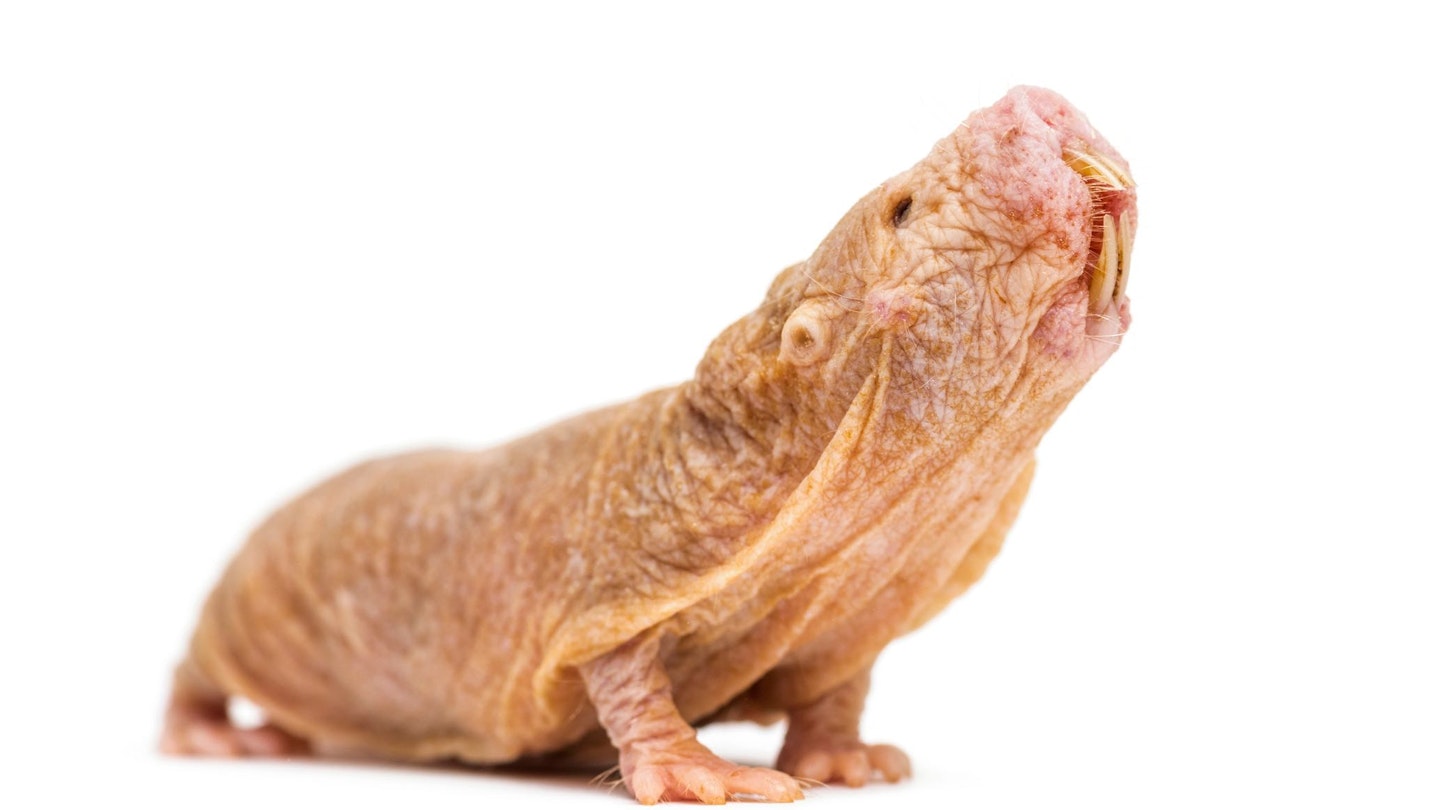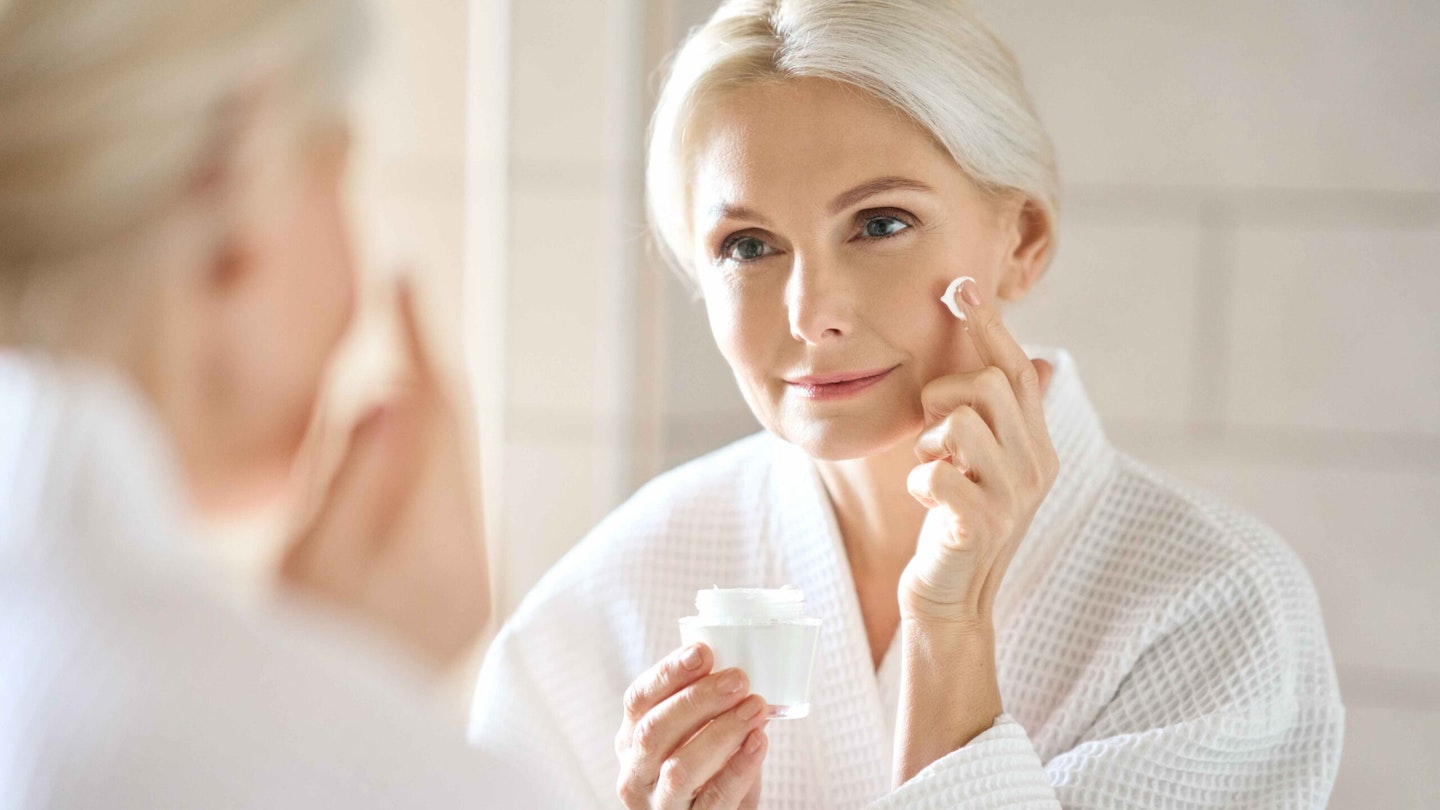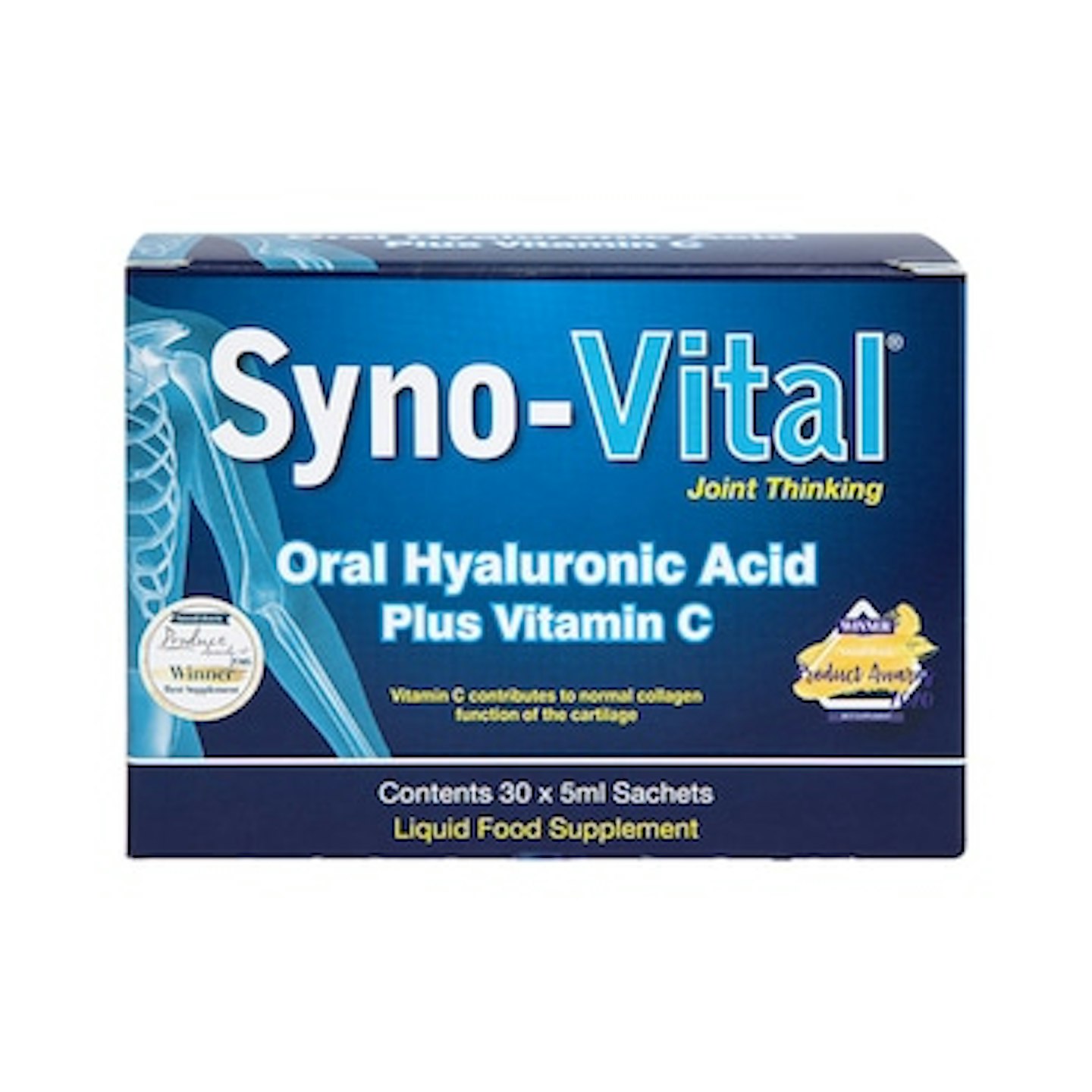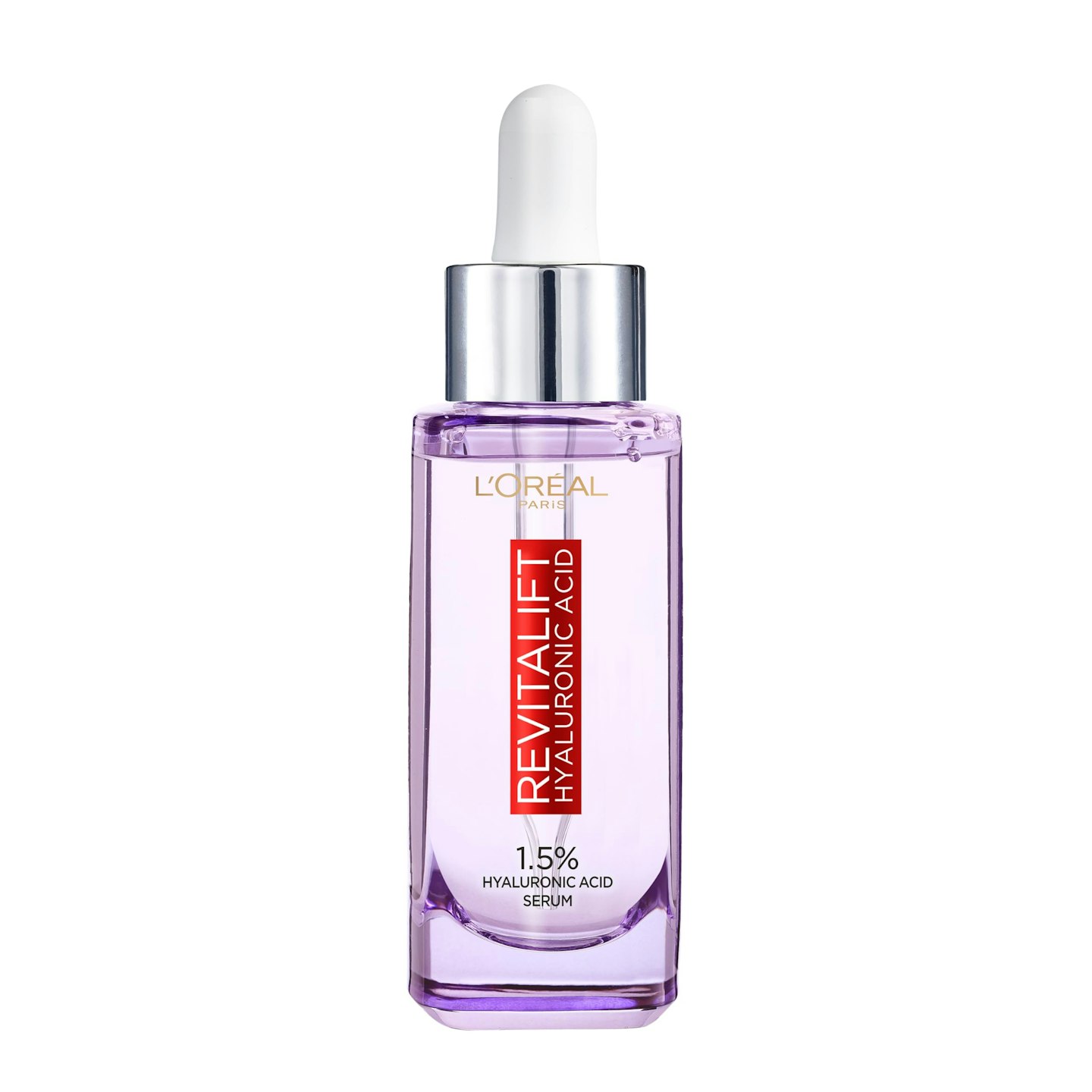An expert reveals why Hyaluronic Acid might be the key to longevity
You might have heard of Hyaluronic Acid already, and you might even be using it as part of your daily skincare regime, but what does Hyaluronic Acid do? It’s found naturally in the body – especially in the eyes, joints and skin, and its main purpose is to keep things running smoothly, preventing joints rubbing together.
In terms of skincare, Hyaluronic Acid reduces wrinkles and fine lines in the face, and it can also help reduce scarring. It works in conjunction with collagen to keep skin supple. However, as we age, our skin can lose elasticity and our joints become stiffer, which is why it’s a good idea to supplement Hyaluronic Acid, or HA as it's often known.
Scientists are discovering more and more about this substance all the time, including the best ways to take it, how it can benefit the joints and even how it can make us live longer.
The naked mole rat study

He may not win any beauty contests himself but what the naked mole rat lacks in looks, he makes up for in his eternal youth with an estimated lifespan of 30 years - outliving the average mouse by 26 years or more.
It would appear that Hyaluronic Acid is the key to his longevity. A team led by researchers from the University of Rochester in New York found that the naked mole rat’s tissues were rich in high molecular weight hyaluronan (HMW-HA), the gooey sugar that is involved in tissue repair.
And now scientists are beginning to explore the possibility that HMW-HA may also have profound benefits for humans. Similar versions of the substance are already licensed to relieve pain in arthritis, and it is often used in skin care and cosmetic fillers to treat wrinkles.
The village of long life
As well as extending the longevity of naked mole rats, researchers have also discovered that a human diet rich in certain starchy vegetables can help. The Japanese village of Yuzurihara has been dubbed the ‘village of long life’ after the inhabitants were found to live on average 10% longer than people elsewhere in the world. Japanese researchers think this phenomenon may be connected to the local diet that is unique to the village – a locally grown range of starchy vegetables that are rich in Hyaluronic Acid.
More than 10% of the population of the village are 85 or older. Not only are they living longer, but they are quite healthy, rarely having to see a doctor.
Starchy root vegetables, like sweet potatoes and turmeric are full of magnesium which encourages the body to make more hyaluronic acid, and these are a staple of the diet in Yuzurihara.
Where is hyaluronic acid found in the body?
We’ve established that Hyaluronic Acid has a lot of benefits, but where can we find it? As already mentioned, it can be found in our eyes, skin and joints, but also in our hair and gums. It is a clear, odourless liquid which is essential for good health; it’s great at retaining water – keeping us hydrated - and plays an important role in transporting nutrients around the body.
As we age however, our levels of HA dramatically decrease. By the age of 50, we produce 50% less. As the supply declines with age, it can cause joints to become stiff and painful, skin becomes dry and wrinkled, and eye health deteriorates. Whilst we cannot stop this process, by supplementing with HA we can slow it down. Natural moisture can be restored, and joints are lubricated.
Interestingly, newborn babies have high levels of HA in their skin. Thanks to this, babies do not develop scars from cuts or scrapes. Scarless wound healing is a property of hyaluronic acid.
What does hyaluronic acid do for your skin?

The skin is the body’s largest organ. It protects us from injury, bacteria and exposure to toxins. This is a challenging job, and therefore we need to keep our skin soft and supple. If our skin cracks due to dryness, it can be potentially harmful allowing microbes inside the body. HA helps the skin stay moist and acts as a barrier. It also renews our skin cells, to keep our complexion healthy and young.
Hyaluronic Acid is widely sold as a skin serum, which you use before your moisturiser. It’s best to allow it to soak in before adding an moisturiser with added SPF on top. Personally, I use L'Oreal Paris Revitalift Filler. I like that I can see a visible reduction in the fine likes around my mouth and eyes.
Dennis Gore, AKA Dennis the chemist, says that HA also boosts the impact of collagen for hair, skin and nails: "Hyaluronic Acid works within the inner and epidermis of the skin, keeping the collagen moist and boosting collagen production.” Together, these two substances can have a real impact on our overall wellbeing.
How does Hyaluronic Acid help your eyes?
Our eyes are mainly fluid and can be sensitive to dryness. Your eyes need hydration to see, and to clean themselves, and to also reduce strain on the tiny muscles that control eye movement and its ability to focus. HA helps the eyes maintain a hydrated environment, which is needed so we don’t strain our eyes.
Dennis adds: “The eye has the highest concentration of hyaluronic acid, (92% to be exact). HA acts as a shock absorber in the eyes, and transports nutrients around the eyes. It plays a major role in keeping the ocular tissues healthy.”
How does Hyaluronic Acid benefit your joints?
Like any machine with moving parts, our bodies require lubrication. Supplementing with Hyaluronic Acid minimises joint friction, which decreases wear and tear on bones and ligaments and maintains flexibility. Without proper hydration, joints become stiff and more difficult to move.
Syno-Vital is a good option for joint and cartilage support. It comes in small liquid sachets, and you just take one each day with a glass of water. It’s particularly good at reducing inflammation and reducing pain for sufferers of osteoarthritis. If you’re already taking collagen, adding HA will boost its powers and Dennis says you can notice changes "within three months for sure, and increasing water intake will also help it work significantly quicker."
He adds: “In the joints, Hyaluronic Acid acts as a shock absorber, so to speak. It can get in between a damaged joint and acts like a cushion at the end of the bone and cartilage.”
Who should take Hyaluronic Acid?

Dennis says anyone over 40 should consider supplementing HA: “Up until 40 the body produces sufficient hyaluronic acid, but after the age of 40 the HA in our body tends to deplete and not replace itself.
“Hyaluronic acid hydrates the body inside and out. During menopause our collagen and HA levels also deplete, so it is imperative to replace the lost HA.”
Dennis also says that HA supplementation such as Syno-Vital is very good for people who exercise regularly, particularly runners: “It can help runners, by keeping the fluid in between the joints, stopping them from drying out, and becoming less mobile. Like a skate on ice, it helps maintain sleek and comfortable movement.
“Hyaluronic Acid is also known to promote wound healing faster than any other substance. Hyaluronic Acid will attach, multiply and surround the joint or injury, ensuring a better and speedier recovery.”
Hyaluronic Acid in menopause and beyond
I am all for living longer, and if I’m lucky enough to do so I’ll consider it a real privilege. But in the here and now my concern is helping as many women as possible move well and without pain throughout menopause and beyond.
I mainly do this through exercise – specifically weight training, but there are many other aspects to wellbeing that cannot be ignored. Eating a diet rich in vegetables, protein and fruit (the Mediterranean diet) is one thing that can help, and choosing the right quality supplements is another.
A good multivitamin, magnesium, B12, collagen and Hyaluronic Acid are the supplements I’d recommend to all women. No one should have to wake up in the morning feeling stiff and sore. It can impact quality of life and in turn our mental wellness.
Julie, a catering supervisor from Lancashire, is 62. She was 50 when she started going through the menopause. Her joints started to feel stiff especially her knees and fingers, and it affected her ability to do her fitness classes. She started taking the Syno-Vital HA supplement and has been taking it regularly now for 5 years.
Her fingers are now supple with no swelling or stiffness and she’s back to her exercise classes without any pain in her knees.
She says: “I wouldn’t be without it now, recently I forgot to re-order it and so had a month or two off. I could tell straight away. My joints seemed to swell, my aches all came back and more importantly my skin began to look dry and tired. I’m a firm believer that HA has helped me stay active and youthful.”
Hyaluronic Acid supplements to try
Best HA supplement for the joints
 Holland and Barratt
Holland and Barratt www.hollandandbarrett.com
Syno-Vital is made of pure Hyaluronic Acid combined with vitamin C, which promotes normal collagen production in the body. In turn, Syno-Vital helps support the joints and cartilage in the body, making movement easier.
The sachets are suitable for vegetarians and vegans, and you just dissolve one in 200ml of water and drink. Over time, customers have noticed an improvement in mobility, and less stiffness in the joints. The price point reflects the quality of the product, and an investment in your health is never a bad thing.
Pros
- Works well to improve mobility in the joints
- Easy to take
- Suitable for vegetarians and vegans
Cons
- A fairly high price point - but we do feel it's worth it
Best HA face serum

www.boots.com
This is the Hyaluronic Acid serum I use on my face. It claims to hydrate the skin and improve texture, making it plumper and firmer. It also says that in one week skin will feel more toned and bouncier.
I would agree with both statements. I started using this because at 44 I wasn't enjoying the look of the fine lines near my eyes and around my mouth. It's my fault for smiling too much! The lines haven't disappeared - and I wouldn't want them to - but they are less noticeable and the biggest difference is that my face is much more lifted and glowy. So much so that people have remarked that I'm looking really healthy, which is always lovely to hear.
You apply the serum sparingly - just 2-3 drops onto the face after washing, and then rub it in. It does feel a little sticky immediately after applying, but this soon fades. I usually apply it, brush my teeth, and then apply my moisturiser. I find that those 2 minutes is enough time for my skin to absorb the serum properly.
Pros
- Good value - you only need a couple of drops each day
- Really makes skin appear more glowing
- Helps reduce the appearance of fine lines
Cons
- Can feel a little sticky immediately after applying - but this soon fades
Becky Fuller is a senior digital writer for Yours.co.uk. She is also a fully qualified personal trainer and strength coach, specialising in fitness and wellbeing for over 50s. Prior to joining Yours, Becky was a fitness writer for Saga, and a freelance entertainment and theatre journalist. Becky is passionate about helping people to move well and discover the many benefits of strength training.
Dennis Gore or "Dennis the Chemist" as he is affectionately known, is a community pharmacist who has specialised in complimentary medicine for over fifty years. Dennis is frequently found discussing current healthcare issues on local news and current affairs shows, as well as lecturing to doctors, pharmacists and other health care professionals.
